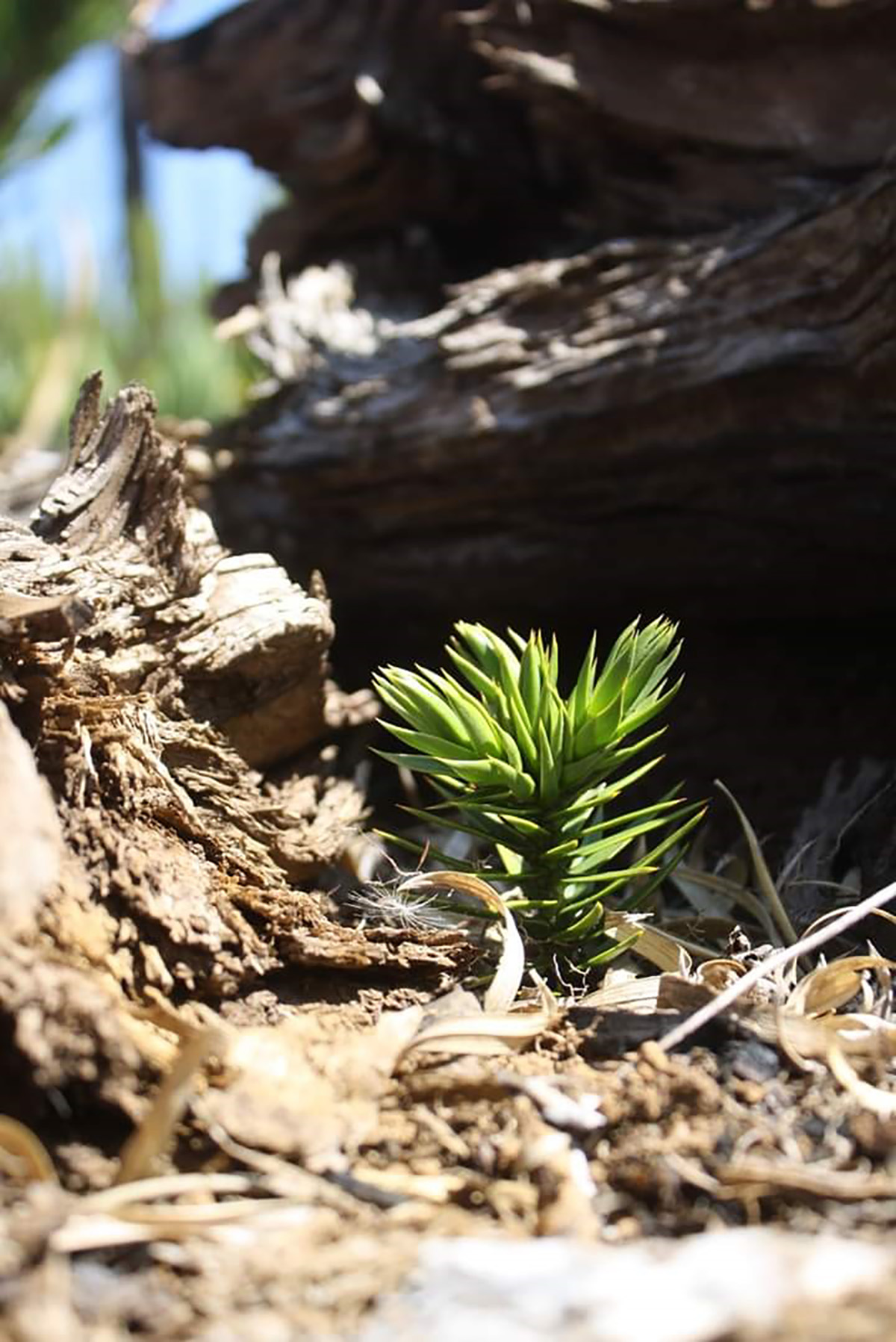Pilot experiences from the UN-REDD National Programme in forests of southern Chile
Chile's forests cover 19% of the country's territory and represent a valuable biological treasure. Chile is making great efforts to protect and preserve this treasure, addressing the multiple threats to forest ecosystems. Within the framework of the CONAF-led National Strategy on Climate Change and Vegetative Resources (ENCCRV) and in partnership with FAO, UNDP and UNEP – partners in the UN-REDD Programme - Chile aims to reduce emissions from forest loss to contribute to the global fight against climate change, as well as drought, desertification and land degradation (DLDD).
One of the main interventions of the UN-REDD National Programme is the implementation of different forest management models that lead to solutions for deforestation and land degradation. Some of these pilot models include ecological restoration practices in native forests affected by forest fires or invasive exotic species (ISS).
The first pilot model focused on the ecological restoration of territories and forests degraded by beavers (Castor canadensis Kuhl) in Tierra del Fuego in the Magellan region. The beaver was introduced in 1946 in Tierra del Fuego, Argentina as part of the development of the fur industry. However, with a diet mainly consisting of tree bark, it has ended up becoming an invasive species and one of the greatest drivers of disturbance in sub-Antarctic forests. Beavers also cut trees to construct levees that flood adjacent areas of forest resulting in the death of vegetation.
The pilot model involved the repopulation of 27 hectares with 22,200 seedlings of native forest species such as Lenga (Nothofagus pumilio) and Coihue de Magallanes (Nothofagus betuloides). This pilot experience will serve as the basis for future restoration of more than 23,500 hectares degraded by beavers in Tierra de Fuego.
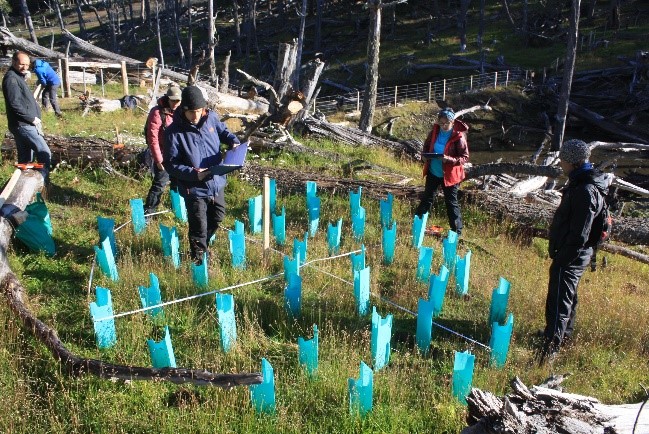
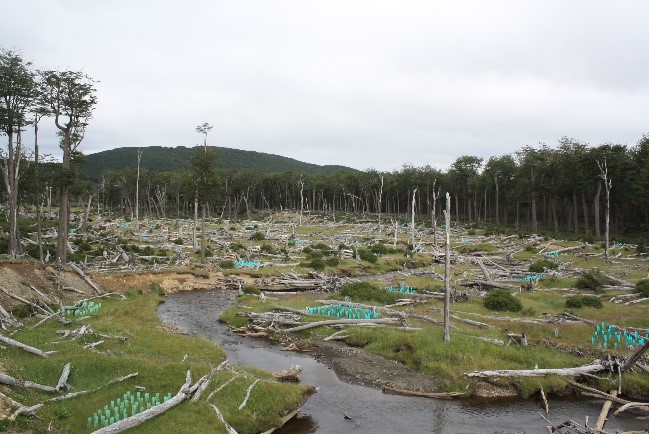
The second pilot model was launched in the Malleco National Reserve and Tolhuaca National Park in the Araucanía region, an area affected by forest fires in 2015.
The increase of wildfires in recent years has profoundly altered forest ecosystems. This pilot model has reforested 50 hectares in the Araucanía region with 14,000 seedlings of native tree species such as Araucaria (Araucaria araucana), Coihue (Nothofagus dombeyi) and Lenga (N. pumilio). Completed with a watershed protection approach, a 1.5 kilometre fence has also been built to protect the seedlings from herbivorous animals. The results have inspired a second stage of the project and involves the council of Longkos and five Mapuches Pehuenches indigenous communities (Mitrauquen, Quinquen, Icalma, Pedregoso and Marimenuco) with a goal to reforest 150 hectares of additional land with 500,000 Araucaria seedlings.
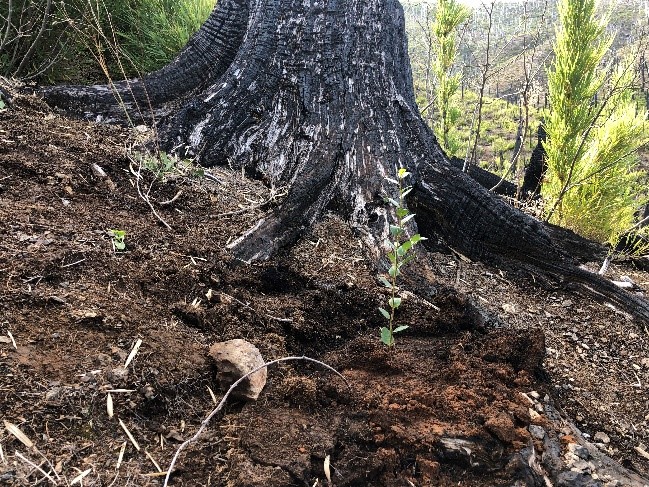
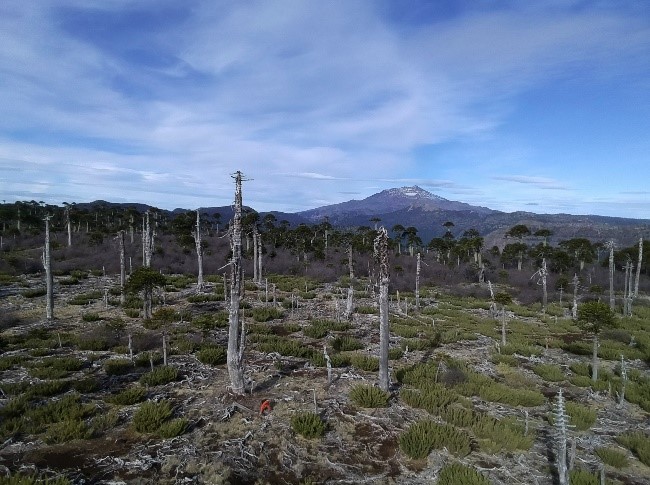
Both pilot projects have used a nucleation strategy as a restoration technique. This involves groups of plants (nuclei) that are introduced to propagate and, in the long term, integrate into the surrounding forest, imitating processes of natural succession. Preliminary results have been promising and show significant survival rates: 89% in the Magellan pilot experience and 62% in the Araucanía region. In the latter case, 720 additional seedlings were planted in order to achieve a survival rate of more than 65% which will allow the ecological process of the affected area to be reactivated. Follow-up activities are currently being carried out in both regions to assess the impact of long-term activities.
These eco-restoration models have improved the repopulation strategy, generated methodologies for replication on a larger scale and enhanced stakeholder engagement in the region. This work has supported the UN-REDD Programme in its efforts to help Chile with compliance with international commitments on climate change and biodiversity, including the National Determined Contribution (NDC).
